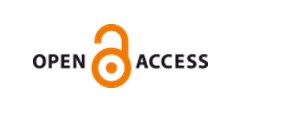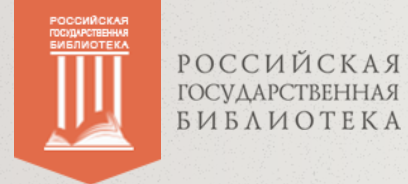Download
Content of journals
ETHICAL PRINCIPLES OF THE «EURASIAN ADVOCACY» JOURNAL
The «Eurasian advocacy» Journal Publishers welcome openness, honesty, pluralism, friendliness, sociability, anxiety for knowledge, generosity and nobility in their relations with authors and readers.
The things we do not accept are dullness, rudeness, plagiary, acquisitiveness, envy and whistle blowing, arrogance and mockery.
In accordance with ethical principles and standards adopted by the leading international academic publishers, the Editorial board have established ethical principles mandatory for all participants of the publication process – Authors, Reviewers, members of the Editorial Board, leading Editors and Publishers.
1. The Author’s responsibility
1.1. By submitting an article to the Editors Office the Author confirms that the given article has neither been sent to another journal nor previously published in other journals.
1.2. The Author is held responsible for the content of his article. An article must contain only original scientific researches and data. If the Author uses data obtained by other researchers, he must include a proper reference in his article. The author must not change the results of other researches which he discusses in his article. All data processing methods and logic of their interpretation must be absolutely clear and understandable.
1.3. The Author is held responsible for both deliberate and undeliberate plagiary. Unauthorized acquisition of any elements of an article (text, graphs, initial data and etc.) is absolutely inadmissible. Elements used with the consent of the right holder must be submitted in a proper form and accompanied with an adequate reference.
1.4. The Author is held responsible for providing true information about financial support of a project described in the article as well as persons who contributed to the research.
1.5. Private information (i.e. confidential information or information obtained during correspondence, conversation or discussion with third parties) must be used or provided only if the Author has a written permission signed by the person who gave such information.
1.6. If the Author finds out a serious mistake or inaccuracy in his own article which has been already published, the Author must immediately inform the Journal Editor or Publisher and cooperate with the Editor in order to eliminate a mistake or make changes to the article. If the Editor or Publisher finds out about a serious mistake in the Author’s article from the third parties and notifies the Author about it, the Author must, as soon as possible, submit a new version of the article or provide proofs to the Editor that the article contains the right data.
1.7. The Author has the right to initiate publication of a previously published article in another language. Such cases are additionally reviewed by the Editorial Board provided that all the participants of the process follow the ethical principles.
2. The Editor’s responsibility
2.1. The «Eurasian advocacy» Journal Editorial Board accepts articles which have never been published before and contain original researches or a broad survey of a topic answering the basic Journal targets. If the «Eurasian advocacy» Journal Editorial Board finds a previously published article which content matches 50% of the article submitted by the Author (as shown by the ‘Antiplagiary’ Program), the Editorial Board reserves the right to refuse to publish the article.
2.2. The Editor is held responsible for the decisions they make about submitted articles. The main reason for the Editorial Board to accept or reject an article is the scientific value of an article and its meaning for scientific progress and education.
2.3. The Editor and members of the Editorial Board cannot disclosure information about submitted articles except for a narrow circle of persons directly related to the article or the publishing process.
2.4. When assessing an article, the Editor must pay special attention at the original information contained there. However, under no circumstances the Editor has the right to use such information in his own researches or for any other personal purposes. Such information can be used only after the article is officially published and only if there is a proper quotation as required by the generally accepted rules and standards.
2.5. Under no circumstances the Editor can make the Author to quote articles published in «Eurasian advocacy» Journal in order to increase the scientometric value of the Journal.
2.6. The Editor must control accuracy and adequacy of quotations in the article approved for publication.
2.7. The Editor must assess the intellectual content of an article disregarding the Author’s race, sex, sexual orientation, religious beliefs, ethnic background, citizenship and political views.
3. The Reviewer’s responsibility
3.1. The process of the article review is confidential and anonymous. The Author is not informed about who reviewed his article in particular. However, the Author can be given the Reviewer’s name if the Reviewer desires so and provides his written consent.
3.2. The Reviewer must not disclosure information about submitted articles to any third parties.
3.3. Before the article is published, under no conditions the Reviewer has the right to use in his own researches or for any other personal purposes information he got access to in the process of the article review.
3.4. If the Reviewer generally approves of the article but has important commentaries to the reviewed article, after consultation with the Editors Staff such commentaries can be published and the Author also has the right to publish his response to the Reviewer in the Journal.
3.5. The Reviewer must review an article within the time limits prescribed by the Journal Editors Staff (not exceeding two weeks). If the review cannot be done in due time, the Reviewer must immediately notify the Editors Staff about the delay.
3.6. When carrying out the review, the Reviewer must try to be as just and fair as possible. The only criterion for assessing the article is its scientific and academic importance. No decisions based on personal preferences of the Reviewer are allowed. If there is any type of the conflict of interests arising between the Reviewer and the Author, the Reviewer must immediately inform the Editors Staff about it.
4. Conflict of interests
All parties concerned must try to avoid any form of conflicts of interests at all stages of the submission, review and publishing process. If the conflict of interests arises, a party discovering such a conflict must immediately inform the Editors Staff about it. The same rule applies to any violation of generally accepted ethical principles and standards.

















